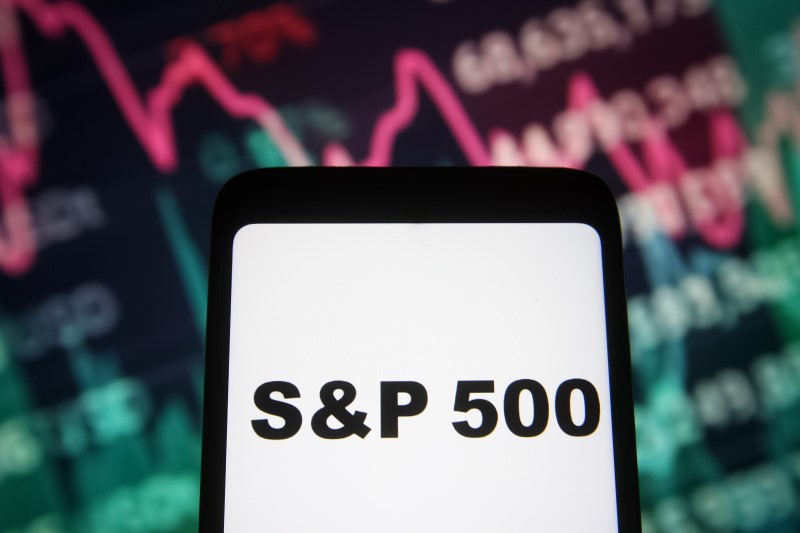By David Randall
NEW YORK (Reuters) – Investors looking toward U.S. corporate earnings growth to revive the rally in the benchmark may be disappointed as inflation remains volatile, strategists at the BlackRock (NYSE:) Investment Institute warned in a note Monday.
The S&P 500 is down nearly 8% from its July highs as a selloff in Treasuries has pushed yields near 16-year highs, sapping investor enthusiasm for equities.
“U.S. corporate profits have plateaued along with the economy,” the firm noted. “Broad equities have started to adjust to the new regime of greater volatility, but don’t fully reflect the macro damage we expect.”
While the firm is underweight broad equities for the next 6 to 12 months, it remains bullish on mega-cap technology companies, as well as healthcare and Japanese stocks, it noted.
Among the risks it sees for equities are the loss of company pricing power as the pandemic-era mismatch in spending between goods and services normalizes, and a tight labor market pushing wages up and keeping inflation above the Federal Reserve’s 2% target rate.
Overall, stock valuations look elevated, especially given the higher yields available in the bond market, the firm noted.
“The income in bonds is also more attractive than stocks on a relative risk basis,” it said.
The bearish call from BlackRock, the world’s largest asset manager, comes as investors closely watch earnings for signs that the U.S. economy remains resilient in the face of rising interest rates.
Companies in the S&P 500 are expected to post earnings growth of 1.3% in the third quarter compared with the same time last year, according to LSEG IBES. That would mark the first pickup after three quarters of flat or declining earnings growth.
Results from megacaps Microsoft (NASDAQ:), Google-parent Alphabet (NASDAQ:), Amazon (NASDAQ:) and Facebook-parent Meta (NASDAQ:) are expected this week, while Apple (NASDAQ:) and Nvidia (NASDAQ:) are set to report next month.
Overall, the megacap companies are expected to post a 32.8% gain in earnings for the full year, while the rest of the S&P 500 sees a 2.3% decline over the same time, according to LSEG.
Read the full article here
